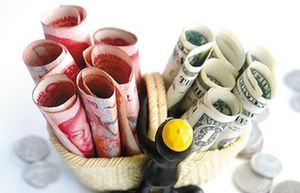WASHINGTON -- The recent depreciation in the value of Chinese currency renminbi, or the yuan, is within normal range and China is still on track toward a more market-oriented exchange rate regime, a senior Chinese central bank official said here Thursday.
"The recent movement of the renminbi, especially since February and March, I think is normal. The depreciation is only something like 2 percent," Yi Gang, deputy governor of the People's Bank of China, said at a seminar hosted by the School of Advanced International Studies in Johns Hopkins University.
"If you look at the volatility of all currencies, probably the renminbi is among the smallest," he added, noting that the volatility of renminbi is minor compared to other emerging market currencies such as Indian Rupee and Brazilian real.
He said he expected yuan's flexibility to increase in the future with two-way fluctuation instead of one way appreciation.
"If you look at China and you look at the movement of the exchange rate in February and March, we are facing the international external environment of the QE (quantitative easing) tapering by the Fed and also facing the economic slowdown, there are some signals predicting China is going to slow down. And the third item, if you look at February's trade number, we have a $23 billion trade deficit in February," said Yi.
"So if you look at what (Fed Chair) Janet Yellen's saying, and the trade figures in China, and also economic indicators," he added. "The market played a determining role in resources allocation. If you believe that, then I think you should let it go. "
Yi's comments came several days after a senior US Treasury official said Washington would watch closely whether the weakness of yuan signals a shift in China's policy away from moving toward a market-based exchange rate.
"Of course, it's perfectly normal and understandable that relevant countries and my dear colleagues, they have some concerns. I think that's perfectly normal," said Yi. "I believe that, as time passes by, people will see clearly and better that the entire exchange rate regime mechanism in China is moving toward a market- oriented way."
The deputy central bank governor said the financial sector reform is an important part in the comprehensive reform blueprint outlined in the Third Plenum of the 18th Central Committee of the Communist Party of China held in November, and China will continue to push forward with it despite difficulties.
"China will implement a deposit-insurance scheme, probably this year," he noted, citing it as "a very important
|
 Yuan eases on widened trading band |
|
